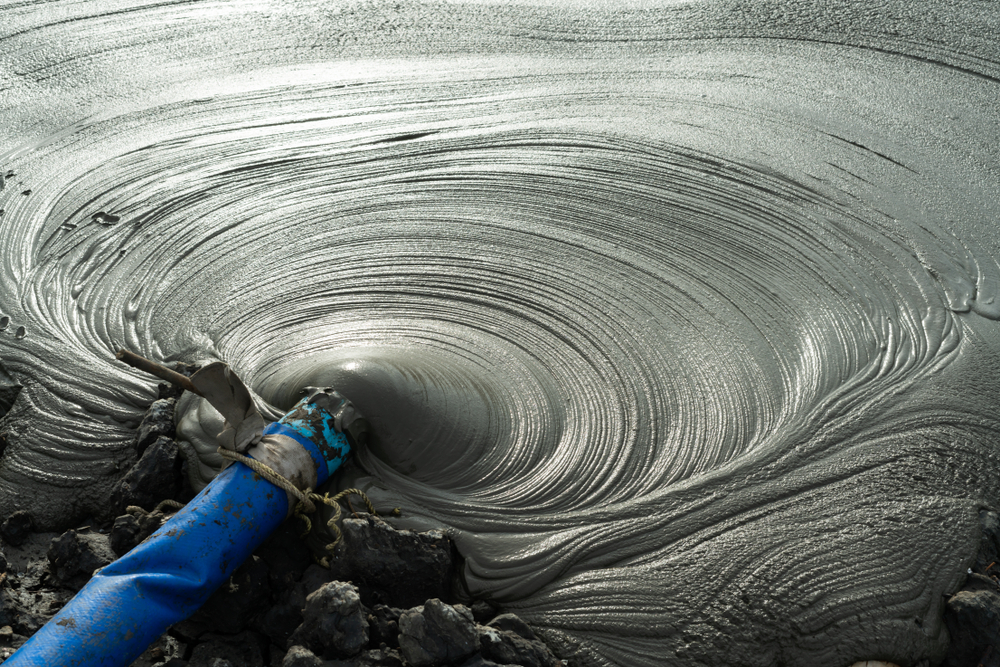API RP 13J Testing of Drilling Fluid Additives
The API Recommended Practice (RP) 13J is a comprehensive guide that establishes standards for testing drilling fluid additives used in the oil and gas industry. This practice ensures consistent quality control, compliance with industry regulations, and enhances safety during drilling operations. The testing outlined in API RP 13J covers a wide range of parameters to ensure that additives meet stringent performance criteria.
Drilling fluids, also known as muds, play a crucial role in the oil and gas sector by providing stability during drilling processes. These fluids are composed of various additives designed to improve their properties such as lubricity, filtration control, rheology, and more. The API RP 13J testing ensures that each additive contributes positively to these critical functions without causing adverse effects on the overall drilling operation.
The testing process involves several key steps which include sample preparation, identification of additives, and evaluation using various laboratory techniques. Compliance with this standard is essential for maintaining operational efficiency and safety in oil and gas drilling activities. By adhering to API RP 13J, laboratories can provide accurate results that are trusted by both manufacturers and end-users.
Understanding the importance of API RP 13J testing helps quality managers, compliance officers, R&D engineers, and procurement teams make informed decisions about selecting appropriate additives for their projects. It ensures that all materials used in drilling fluids comply with industry best practices, thereby promoting consistent performance across different operations worldwide.
- Sample Preparation: Proper handling of samples is critical to obtaining accurate test results. Samples must be representative and free from contamination before testing begins.
- Additive Identification: Accurate identification ensures that the correct additives are being tested against established standards.
- Evaluation Techniques: Various analytical methods are employed depending on the specific property being evaluated, such as particle size distribution or chemical composition.
The API RP 13J testing process is designed to provide reliable data that can be used by stakeholders throughout the oil and gas supply chain. This information is vital for ensuring product consistency, meeting regulatory requirements, and enhancing operational safety during drilling activities.
By adhering to these rigorous standards, laboratories like ours ensure high-quality results that are trusted by leading companies in the industry. Our commitment to accuracy and precision sets us apart as a reliable partner for all your API RP 13J testing needs.
Eurolab Advantages
Our laboratory offers unparalleled expertise in API RP 13J testing, providing services that go beyond mere compliance. With state-of-the-art facilities and experienced personnel, we deliver precise results tailored to your specific requirements.
- Accurate Results: Our advanced instrumentation ensures accurate measurements of key parameters specified by API RP 13J.
- Comprehensive Services: We cover a wide range of testing services related to drilling fluid additives, ensuring complete coverage of all necessary criteria.
- Regulatory Compliance: All our tests comply with the latest versions of relevant international standards including API RP 13J.
- Expertise and Experience: Our team consists of seasoned professionals who are well-versed in the nuances of API RP 13J testing.
By choosing Eurolab for your API RP 13J testing needs, you gain access to a wealth of knowledge and experience that will help enhance the quality and reliability of your drilling fluids. Our commitment to excellence ensures that every test conducted meets or exceeds industry expectations.
Customer Impact and Satisfaction
The impact of API RP 13J testing extends far beyond just meeting regulatory requirements; it significantly contributes to operational efficiency, safety, and environmental sustainability within the oil and gas sector. Here are some ways in which our customers benefit from this service:
- Enhanced Safety: By ensuring that all additives comply with API RP 13J standards, we contribute to safer drilling operations.
- Informed Decision Making: Accurate and reliable test results allow stakeholders to make informed choices about which additives best suit their needs.
- Better Product Quality: Ensuring that every additive meets the required specifications leads to higher quality products, enhancing overall performance during drilling activities.
- Environmental Responsibility: Our testing helps minimize environmental impact by ensuring that only safe and effective additives are used.
In summary, API RP 13J testing not only ensures compliance but also promotes best practices in the oil and gas industry. By partnering with Eurolab for this critical aspect of your operations, you can rest assured knowing that you're receiving top-notch service backed by years of experience and cutting-edge technology.
Use Cases and Application Examples
The API RP 13J testing process is integral to various aspects of the oil and gas industry, particularly in relation to drilling fluid additives. Here are some practical applications where this service finds relevance:
- New Additive Development: Manufacturers can use our testing services early in the development stage to identify potential issues before large-scale production.
- Quality Control: Continuous monitoring ensures that all batches of additives meet specified standards, maintaining consistent quality throughout production runs.
- Supply Chain Management: Rig operators and service companies benefit from knowing that they are using compliant materials, reducing risks associated with non-compliant products.
- R&D Projects: Academic institutions conducting research into improved drilling fluid additives can rely on our testing to validate their findings.
In addition to these use cases, API RP 13J testing plays a vital role in ensuring that all stakeholders involved in oil and gas operations adhere to industry best practices. This not only enhances operational efficiency but also promotes safer working environments while reducing potential environmental impacts.





